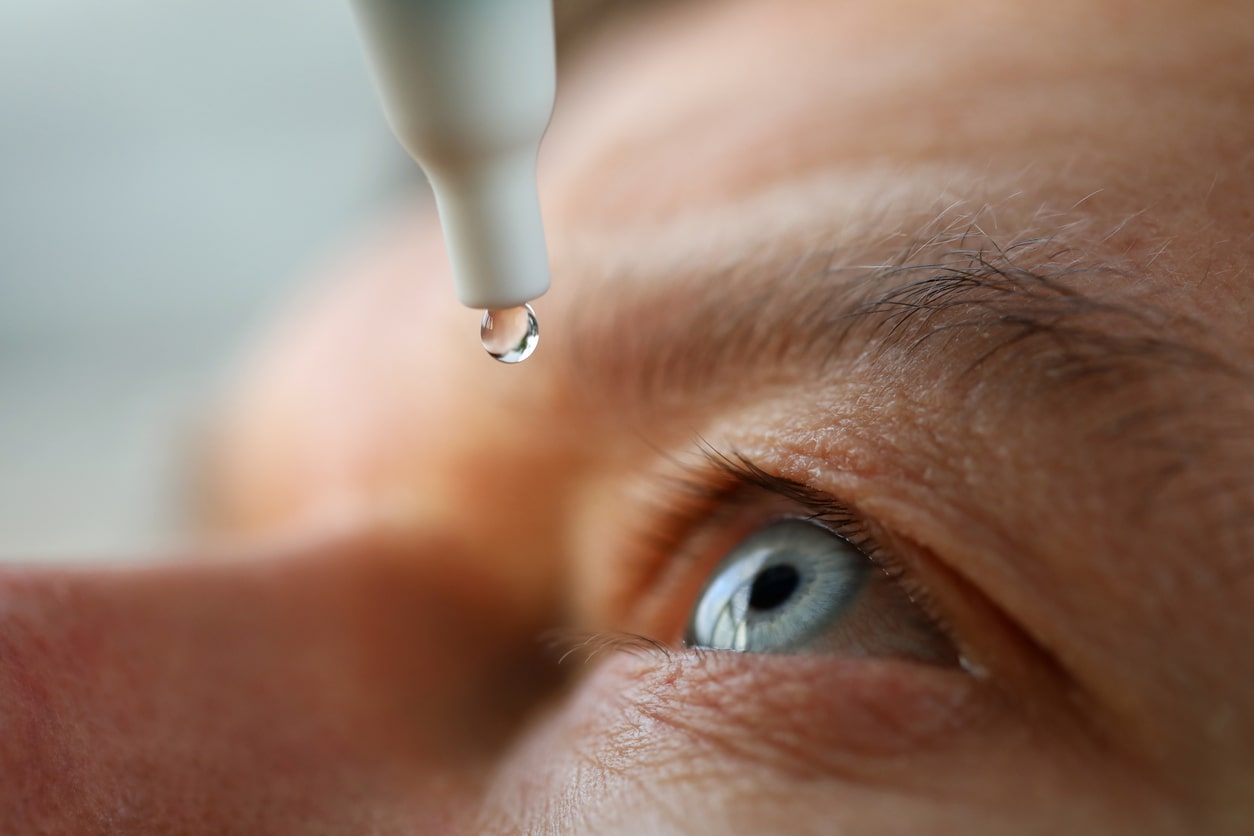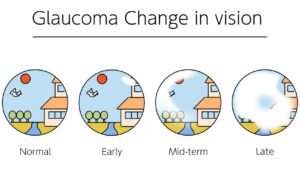
Glaucoma can significantly impact an individual’s vision and daily life. If you suspect you might have glaucoma or are experiencing related symptoms, taking the necessary steps to identify and manage the condition to protect your eye health is imperative. In this blog, we’ll discuss the signs of glaucoma, what you should do if you suspect you have it, and how to care for your vision health.
Understanding Glaucoma
Glaucoma is an eye disease associated with increased inner eye pressure, causing damage to the optic nerve, and leading to progressive, irreversible vision loss. Aging, family history, race, and certain medical conditions like diabetes or hypertension can increase the risk of glaucoma.
What to Do If You Suspect Glaucoma
If you notice any changes in your vision or believe you may be showing signs of glaucoma, acting promptly is essential. Being proactive and responsive can help manage your eye health and preserve your vision.
- Schedule an Eye Exam: The first step when suspecting glaucoma is scheduling a comprehensive eye exam with a qualified optometrist or ophthalmologist. They have the necessary knowledge and tools to diagnose underlying issues potentially causing vision problems. The eye exam may include testing your visual acuity, examining your eye’s internal and external structures, conducting specialized tests like tonometry (measuring pressure in the eye), optic nerve imaging, and visual field testing. If you’re experiencing symptoms of glaucoma, consider scheduling an appointment with the expert team at Florida Eye Specialists and Cataract Institute.
- Regularly Monitor Your Vision: Keep an eye out for noticeable changes in your vision, such as blurry vision, visual disturbances, difficulty adapting to different light conditions, or loss of peripheral vision. These may be signs of glaucoma and should be promptly reported to your eye care professional.
- Adopt Healthy Habits: Healthy lifestyle changes can help manage glaucoma and maintain eye health. This includes a balanced diet, regular exercise, UV-protected sunglasses, and avoiding smoking.
- Follow Prescribed Treatment: Sticking to the recommended treatment plan is crucial if you’re diagnosed with glaucoma. This may include prescription eye drops, oral medications, or in some cases, surgery, or laser treatment.

Treating Glaucoma
If glaucoma is confirmed, your eye care professional might suggest one or more of the following treatment strategies:
Medications
Prescription eye drops, or oral medications are often the first line of treatment for glaucoma. These can help reduce eye pressure and prevent further optic nerve damage:
- Eye Drops: These special drops help your eye in two ways. Some make less fluid in your eye, while others help the fluid drain better.
- Pills: If the eye drops aren’t working well enough, your doctor might give you a pill that helps your eye make less fluid.
Surgery
If medications are ineffective, surgical interventions such as laser therapy or traditional surgery may be recommended to improve eye drainage and lower intraocular pressure.
- Laser Therapy: There are several types of laser surgeries used to treat glaucoma, including:
- Trabeculoplasty: This procedure is typically used for open-angle glaucoma. The surgeon uses a laser to make the drainage angle—the area in your eye where the clear fluid exits— so it works better, reducing the eye pressure.
- Iridotomy: This is mainly used for angle-closure glaucoma. A tiny hole is made in the iris (the colored part of your eye) with a laser to let fluid flow more freely within the eye, reducing the pressure.
Traditional Surgery
If laser therapy is ineffective or unsuitable, more invasive surgical procedures may be necessary:
- Trabeculectomy: This is the most common type of glaucoma surgery. The surgeon creates a new drainage pathway for the fluid to leave the eye. This reduces the pressure inside the eye and helps prevent further optic nerve damage.
- Glaucoma Drainage Devices: These are small, flexible tubes inserted into the eye to help fluid drain out, lowering the pressure inside the eye.
All surgeries carry risks and potential complications. However, these procedures have been proven effective in treating glaucoma when medications are insufficient. Discussing these options with your doctor to determine the best treatment strategy for your case is essential.
Vision Rehabilitation
Vision rehabilitation services can provide training and support to help you adapt to vision loss and learn new skills to maintain your independence and quality of life.
Support Groups
Engaging with others experiencing similar challenges can offer emotional support and practical advice. Support groups and online forums are valuable resources for sharing experiences and coping strategies.
Glaucoma Prevention and Eye Care
Regular Eye exams are key to spotting glaucoma before it damages your vision. These exams typically include tests to measure the pressure in your eyes, check your peripheral (side) vision, and inspect the optic nerve. If glaucoma is detected early, treatments like eye drops or surgery can often prevent or slow down vision loss. Therefore, make sure to have eye exams on a schedule recommended by your eye doctor, usually every 1-2 years.
A healthy lifestyle can help your eyes stay healthy. This includes:
- Balanced Diet: Eating healthy foods, especially fruits, vegetables, and fish, high in omega-3 fatty acids, can help your eyes stay healthy. These foods are rich in antioxidants, vitamins, and minerals that are good for your eyes.
- Healthy Weight: Being overweight or obese increases your risk of developing diseases like diabetes, which can increase your risk of glaucoma. So, maintaining a healthy weight can help protect your eyes.
- Regular Physical Activity: Regular exercises like walking, cycling, or swimming can help lower your eye pressure and reduce your risk of glaucoma.
- Manage Chronic Conditions: If you have chronic diseases like diabetes or high blood pressure, managing them effectively is essential. These conditions can damage your blood vessels, including those in your eyes, increasing your risk of glaucoma. Make sure to take your prescribed medications and follow your doctor’s advice.
- Quit Smoking: Smoking is harmful to your eyes. It increases the risk of many eye diseases, including glaucoma. If you’re a smoker, it’s crucial to quit. Many resources, including nicotine replacement products, medications, and support groups, are available to help you stop smoking.
Remember, while these steps can’t guarantee you won’t get glaucoma, they can lower your risk and help keep your eyes as healthy as possible.
Seeking Professional Help
Not all tips work for everyone, and it’s crucial to consult with an eye care professional to determine the best course of action for your situation. If you suspect you may have glaucoma, please don’t delay care. Contact Florida Eye Specialists and Cataract Institute today.


